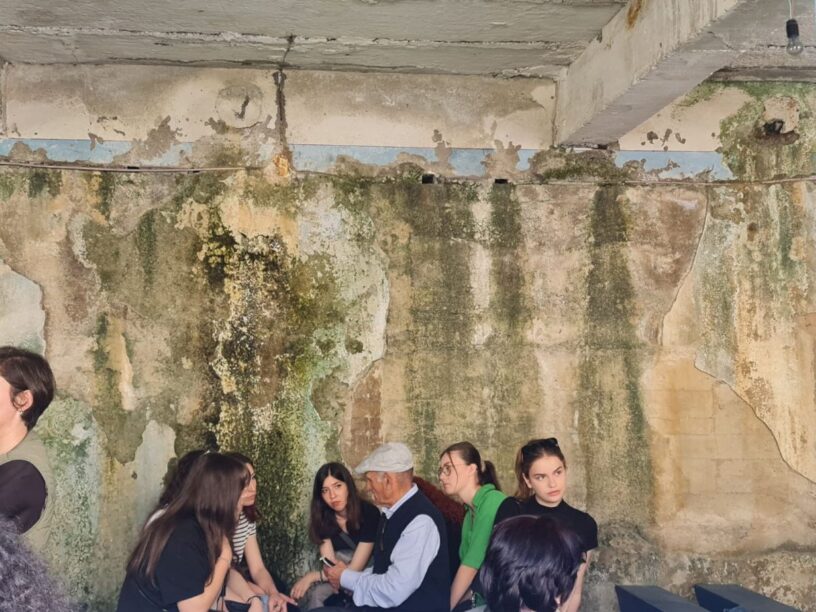An interactive exhibition at the infamous communist labour camp and prison in Spac has brought visitors closer to the experiences of those who survived it.
At an exhibition at the former communist-era labour camp and prison at Spac in Albania, visitors heard the stories of some of former political prisoners held there.
A group of young people gathered to hear Hysen Dobjani, who was sentenced to seven years in jail for “agitation and propaganda” and sent to Spac.
One of them asked him what his advice was for young people today, and what they should do to change the society.
“People become aware when you tell them the reality; don’t use them like the political prisoners were used,” he told them, highlighting that only the truth can change things.
The exhibition event is interactive with a focus on remembering, experiencing and reflecting.
“All visitors will engage in a cultural act of silence and remembrance (partly performative), in combination with the exhibition and human library. The activity will evolve around three themes: remembering, experiencing, and reflecting,” the organisers said.
“Whether is it beautiful or painful, its history is condensed within past and present cultural nuances that can be processed to reveal all traces of a continuous social development,” it added.
Another former political prisoner, Ali Bega, told BIRN that he spent 12 years in communist prisons after attempting to leave Albania. He said the site should become a permanent museum of memory.
“The organisation of the event is very good – but no official has come,” he complained. “It seems to me that they are saying: ‘they’re still alive?’ With this action, they’ve ignored it,” he told BIRN.
“There should be more information in schoolbooks, there should be special books, special subjects about communism,” he added.
But another political prisoner, Gjet Kadeli, who also spent 12 years in prison for “agitation and propaganda”, told BIRN that “it is already too late” for the site to be a museum of memory.
“It’s too late – and the communists in [still] power have been too late in compensating former political prisoners in Albania according to international laws,” he told BIRN.
Spac was one of the most infamous jails in communist Albania. Located in a remote mountainous area in the north of the country, inmates were forced to work in copper and pyrite mines in very harsh conditions.
Despite promises by the Albanian authorities, the site has not yet been declared a cultural monument for preservation.
The prison was closed in 1990 but remains an important symbol because one of the few incidents in which Albanians rebelled against the repressive communist dictator Enver Hoxha took place there.
On May 21, 1973, prisoners at Spac staged an uprising against their guards, calling for freedom and the end of communism, and raising the Albanian flag without the communist red star on it. The revolt was violently suppressed after two days.



